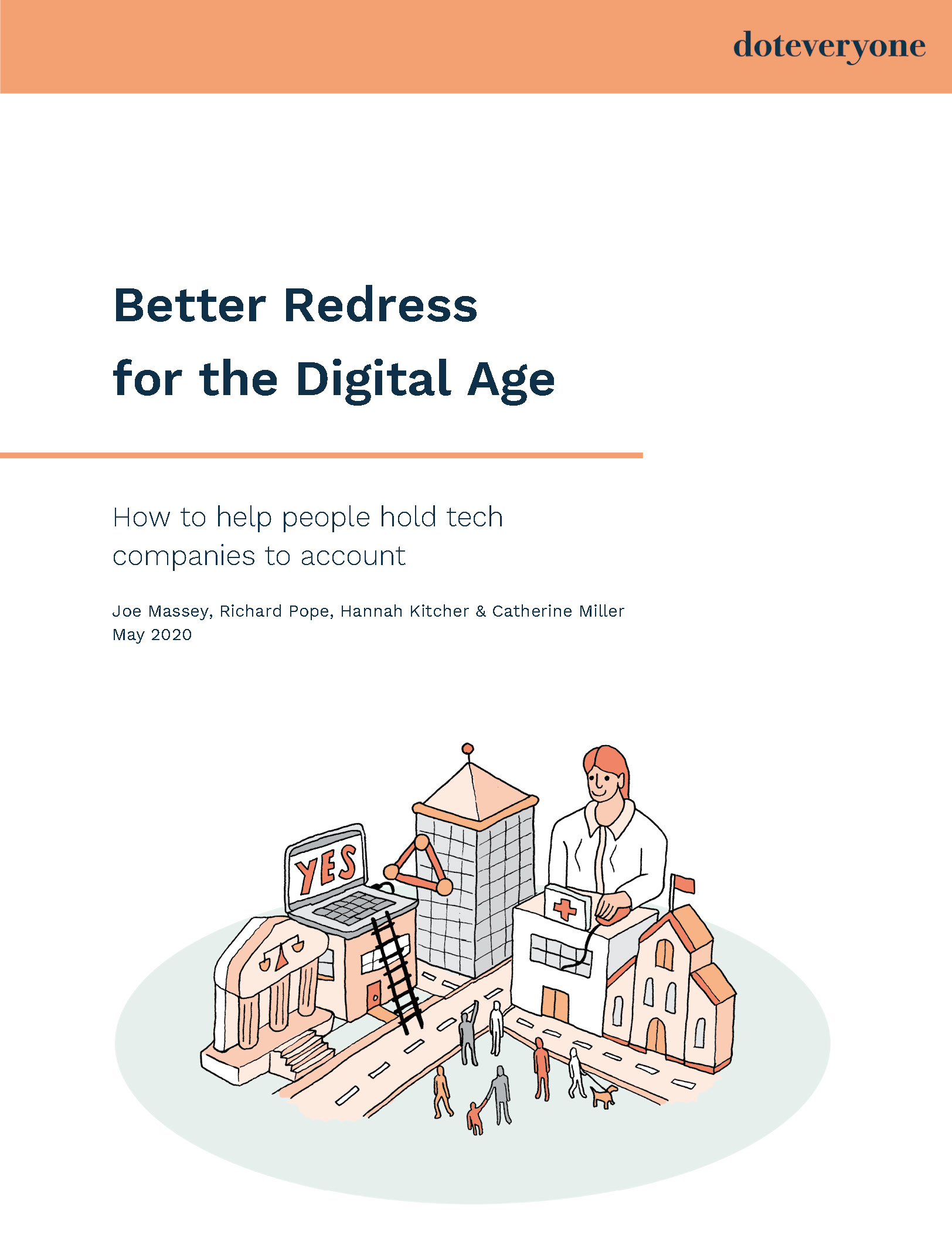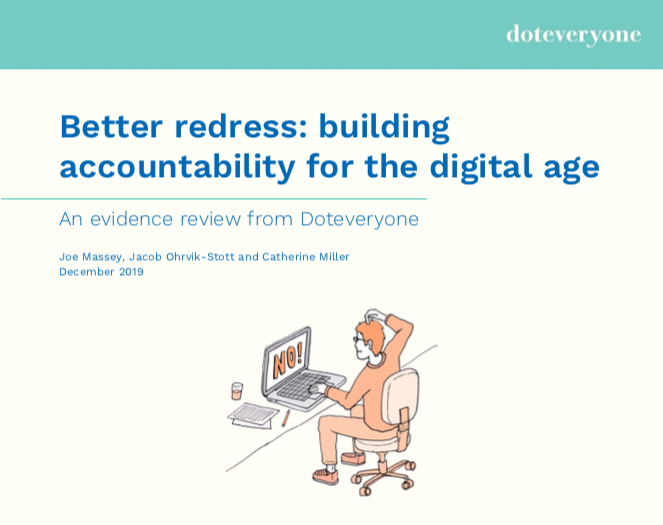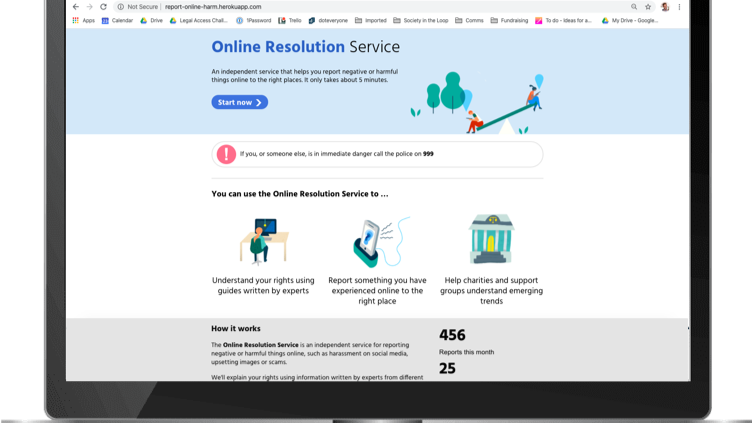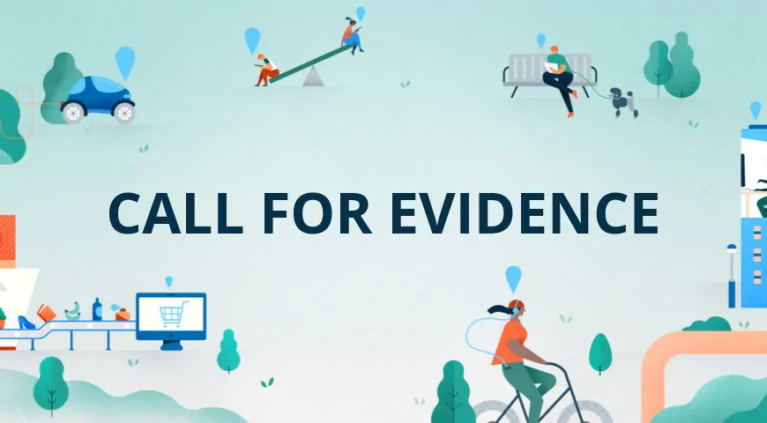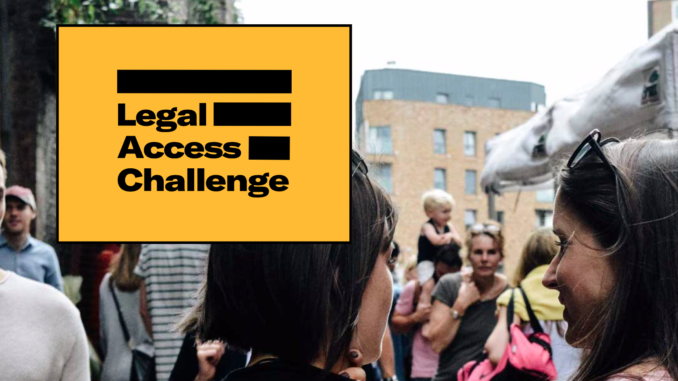In our recommendations for a regulatory system fit for the digital age, we call for improved redress alongside increased capacity for regulators and a robust evidence base to inform the public and policymakers.
Since then we have conducted extensive research to explore how to build effective systems of redress for the digital age. This has included a review of the existing evidence as well as engagement with the public, regulators, lawyers, policymakers, human rights groups, consumer advocates, academics, technologists and more.
Alongside this we have developed a prototype for a complaints service – the Online Resolution Service – to help the public understand their rights and channel their complaints.
In our review of the current digital redress landscape, we identified three challenges to redress in a digital age:
- Defining what meaningful redress looks like in the online world – in a space where many online services are free at the point of use, conventional notions of redress such as financial compensation don’t translate.
- Developing new structures of redress fit for the scale and pace of online services – the unprecedented scale and pace of change of online services requires change at every stage of the public’s experience of redress.
- Making it easier for people to navigate digital complexity – the public needs support to navigate the complex digital world, to understand the rights afforded to them and how to demand rights where none yet exist.
In Better Redress for the Digital Age, we look at responses to these challenges.
- Delivering effective redress to individuals: The nature of online harms makes traditional forms of redress like financial compensation redundant. Good redress in the digital age must focus on processes rather than outcomes. We recommend seven principles that the new regulator should use to assess whether companies are delivering effective redress to individuals.
- Driving the collective response: People need somewhere to turn when they’re not happy with a company’s response. And it’s important that there’s an effective remedy for harms that affect large groups of people. We see a role for super-complainants to escalate unresolved complaints as well as to act on behalf of the public to demand collective redress. But the organisations that take on these responsibilities will need sufficient resources and digital capabilities to do so.
- Unlocking civil society expertise: Charities and support groups already help the public deal with the impacts of technology in their lives. As part of an effective ecosystem, it’s important to harness the expertise they hold. In designing an Online Resolution Service we found this was an effective way to harness the knowledge civil society organisations hold, as well as to feed back insights about the nature of online harms. Finally, we explain in more detail how the Online Resolution Service works.
Better redress is not a nice to have in the digital age. It’s the cornerstone of a fair, inclusive and sustainable democratic society. As this work shows, it is also achievable. All that is required is the willingness to act.
